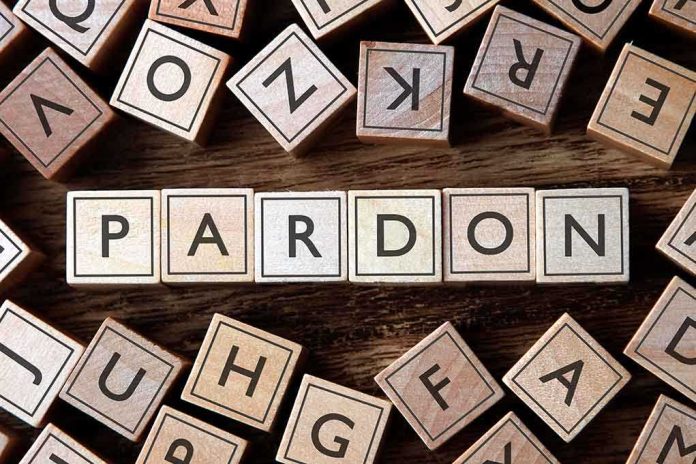
In a dramatic yet legally constrained move, Donald Trump has pardoned Rudy Giuliani and others accused of trying to overturn the 2020 election results.
Story Highlights
- Trump issues pardons to key allies Giuliani and Meadows.
- Pardons only apply to federal charges, not state prosecutions.
- Legal and political implications of presidential pardon power.
- Continued legal jeopardy at state level for pardoned individuals.
Pardons and Their Limitations
Donald Trump, President of the United States, has issued federal pardons to several of his close allies, including Rudy Giuliani and Mark Meadows, in a move that has sent ripples through the political landscape. These pardons come amid a backdrop of accusations that these individuals attempted to overturn the 2020 presidential election results. However, the pardons carry a significant limitation: they only apply to federal charges, leaving ongoing state-level prosecutions unaffected.
The legal landscape remains fraught for those pardoned. State prosecutors continue to pursue charges independent of federal jurisdiction, highlighting a crucial distinction in the scope of presidential pardon power. This action underscores both the influence and the limitations of executive clemency, raising questions about the balance of power between federal and state legal systems.
The Broader Political Implications
The timing and nature of these pardons are as much a political statement as they are a legal maneuver. By issuing these pardons, Trump reinforces his narrative of a “stolen” election, a sentiment that has deeply divided the American political landscape. For Giuliani and Meadows, the pardons offer temporary relief but do not shield them from potential state-level legal battles, keeping them in a precarious position.
For Trump, the decision to pardon his allies serves to protect those who have remained loyal, while simultaneously sending a message to both supporters and opponents about his enduring influence within the Republican Party. The move is likely to energize his base while further polarizing the political environment.
Precedent and Perspective
Historically, presidential pardons have been used to mitigate perceived injustices, but they have also sparked controversy, particularly when they appear to serve political ends rather than purely legal ones. Trump’s use of this power in this instance will likely be scrutinized by historians and legal scholars alike. The debate over the ethical implications of such pardons is bound to continue, especially as it pertains to their role in politically charged cases.
Legal analysts have pointed out that while the pardons are significant, they do not resolve the legal challenges facing Giuliani, Meadows, and others. The state-level prosecutions are expected to proceed, potentially setting up a complex legal battle that will test the resilience of the individuals involved and the legal system itself.
Future Implications
The long-term implications of these pardons could shape the landscape of executive clemency. They may set a precedent for future administrations and influence public trust in the justice system. Critics argue that such actions undermine the rule of law, while supporters claim they are necessary to correct injustices and protect political allies.
As the legal and political ramifications continue to unfold, one thing remains clear: these pardons have not closed the book on the controversies surrounding the 2020 election. Instead, they have opened new chapters in the ongoing debate about accountability, justice, and the limits of presidential power in American democracy.




